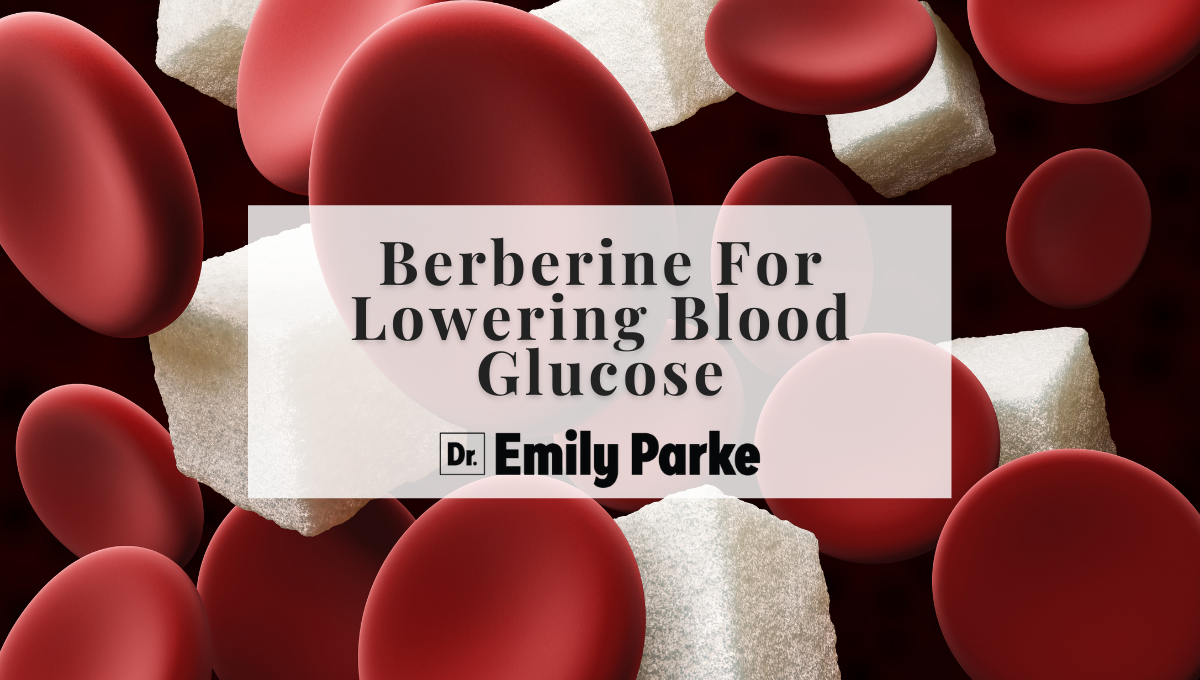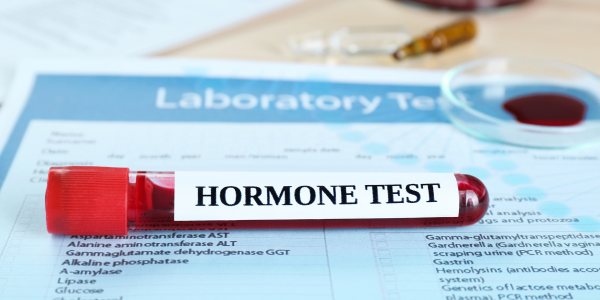

Berberine For Lowering Blood Glucose
Hi, this is Dr. Emily Parke with your next Functional Health Minute. I’d like to take a couple minutes to talk about one of my favorite supplements to help lower blood glucose and that is Berberine CM. And this berberine that I like to use is formulated with alpha-lipoic acid, which also helps to lower blood glucose. There are some studies out there showing that Berberine is as effective as Metformin, which is a prescription medication for pre-diabetes in helping to lower blood glucose, so it helps with the insulin sensitivity part of it. But berberine also has several other really great benefits to it and I also use it for many other reasons other than just blood glucose control. Berberine is also a potent antimicrobial, so I use it sometimes in gut protocols, so things like SIBO or if there’s overgrowths in the stool. If the bacteria happens to be sensitive to berberine, I can use that to help balance the microbiome.
Berberine and Alpha-Lipoic Acid
And then there’s also some really good studies on berberine in COVID, for example. Berberine is amazing. I like to use a total dose of about 1,000 milligrams per day. And like I said, the one I like to use is paired with alpha-lipoic acid, which also has some blood glucose lowering effects. But alpha-lipoic acid also has some other really cool benefits to it. ALA is also helpful for detoxification. I actually prescribe it sometimes for a metals detoxification protocol. And alpha-lipoic acid also has some really good studies showing that it can help with nerve pain as well. So the combination of the berberine and the alpha-lipoic acid I find to be really, really super helpful.
So I hope you find this interesting and something to consider for yourself. If you’re actually struggling with higher blood glucose measurements, this can really be something that’s helpful, something that’s non-prescription. Of course, you do want to check with your healthcare provider to make sure it doesn’t interact with any other of your current prescription medications. And of course, if you have liver or kidney disease, you always want to talk to your practitioner before starting any new supplements or medications. This is Dr. Emily Parke with today’s Functional Health Minute.
Share:
Dr. Emily Parke
Social Media
Most Popular Posts
Subscribe To Our Newsletter
Related Posts

New Podcast Episode: My journey into functional medicine + what I’ve learned
I’m excited to share that I recently joined DeLo for Episode 165 of the On the DeLo podcast! In this conversation, we explored my journey

Understanding the Essential Labs for Women on Hormone Replacement Therapy (HRT)
So what are the minimum labs we’re looking at when we do hormone replacement therapy? We obviously want to look at an estrogen level, so

How to figure out the right amount of HRT in women
What about checking lab values when you’re on hormone replacement therapy? I do find it to be helpful, but we also want to consider symptoms.

Did you know there’s a difference between food allergies, sensitivities, and intolerances?
Did you know that there’s a difference between food allergies, food sensitivities and food intolerances? Food allergies, the reactions tend to happen pretty immediately and
